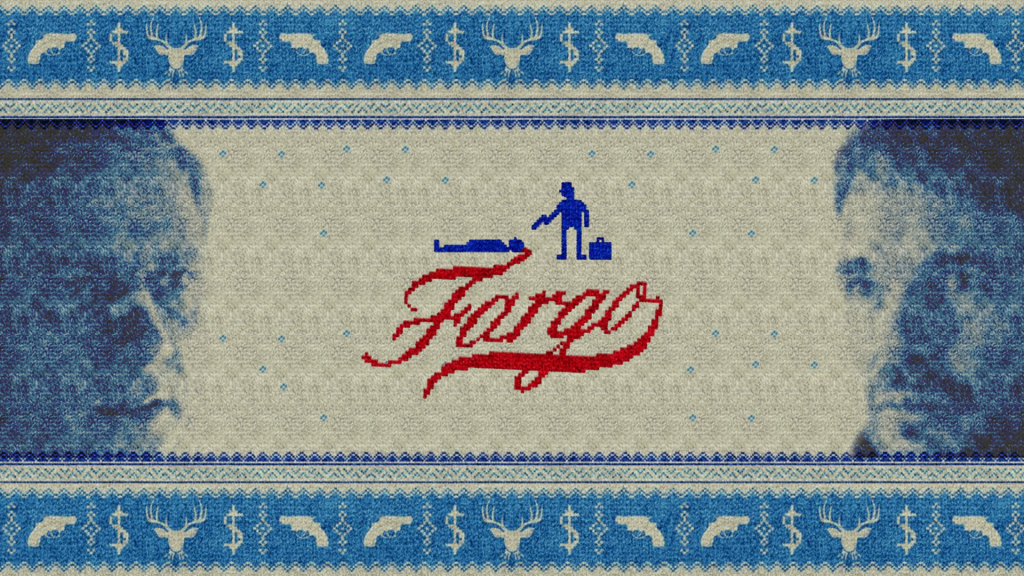
I am posting this way too late. Oh well. TV series are no longer time bound anyway.
I watched the first two seasons of Fargo when they came out. The last one was I don’t know how many months ago. I have been meaning to write about this. Now, I won’t remember all the details as I should, but that’s okay cause I just want to hit the broadbrush strokes anyway so I don’t spoil the good stuff.
I found the original movie Fargo by the Coen brothers to be fascinating and carrying their usual quirky, dark, but hopeful worldview. When the series came up, I thought I wouldn’t want to see the movie redone as a series, and didn’t think there would be enough to hold it through 10 hours.
I was seriously wrong.
Fargo is one of the best series on TV (I hate that term TV. It’s got a negative stigma and doesn’t even apply anymore. I watched it online). It captures the original spirit of the Coen brothers and repackages their thought-provoking storytelling in a way that quite frankly I find much more satisfying than the original movie.
Here is why I love Fargo the series so much…
Dark But Redemptive
Sadly many cable and online series today suffer from nihilism. As the Coen brothers taught us in The Big Lebowski, nihilism means “nothingism.” (“Vee Believe in Nussing”). Nihilists reject transcendent truth and morals, and therefore conclude that all of reality reduces to the will to power, their ultimate god. Series like Game of Thrones and House of Cards are well-told but toilet bowl narratives of spiraling depravity that only become interesting when a hero rises – only to die in the next episode of their nihilist worldview. Wallowing in a storyworld of darkness without light is more autobiographical of emptiness in the storytellers than of reality.
But the world is full of evil that often wins and causes great suffering for the innocent and the righteous. We do live in a depraved world and Fargo depicts that evil with frighteningly banal and ironic reality. Billy Bob Thornton’s relentless shark Lorne Malvo in season one, or Bokeem Woodbine’s ruthlessly brilliant Mike Milligan and the mafia-like brutality of the Gerhardt family in season two, all capture a fascinating look at the twisted psychology of evil in both individuals and social groups.
Fargo is not for the squeamish or faint of heart. It is R-rated like the Bible. It does not shy from depicting man’s inhumanity to man. But this is not a fascination with evil or celebration of gore. Fargo also provides one of the most unique and truthful incarnations of the doctrines of original sin and total depravity that I have ever seen.
What I mean is that it makes the universal connection with real and true EVIL in all hearts and persons. Thus, those of us foolish enough to think that we “normal people” who are not bad like those evil criminals are exposed in Fargo as having the exact same seed of evil as the worst criminal. The difference comes in whether we act upon it or feed the beast.
The Banality of Evil
Each season focuses on a quirky and “average joe shmoe” who gets entangled in trouble and by making little choices to avoid taking responsibility for each step, they go deeper and deeper into a mess that brings them into contact with more organized elements of criminality.
The dark humor lies in watching these simpletons maneuver their way through their mess, driven by self-preservation and avoidance of consequences of their actions. The result is that these “normal people” who continue to see themselves as “good” end up doing as heinous behavior as the criminals they seek to avoid. And it all comes about by the small little moral compromises that build upon the self-delusion of goodness and the avoidance of responsibility for their choices and actions.
In season two, the ruthless Dodd Gerhardt, seeks to kill the simpleton “normal” couple, the Blumquists, who accidentally killed his brother. But when the tables turn, the Blumquists capture Dodd and hold him tied up in a cabin. At that moment, I wasn’t sure who I was more frightened of, the mad animal Dodd who knew the pain he inflicted upon his victims, or the simpleton Peggy Blumquist, who sticks Dodd with a knife to shut him up, without any awareness of the pain she was inflicting.
The point of it all is that, contrary to popular opinion in our society, man is not basically good, and those who are normal people or average good persons have the same evil nature as in the worst of criminals. The growth of that evil nature lies in whether you take moral responsibility for your behavior or not. The more you play the victim and blame your situation on others, the more you become the monster you perceive chasing you. (Sound familiar to what is going on right now in our society of victim politics rising up with violence justified by delusional narratives of persecution?)
This is a powerful Biblical truth that is too often denied and mocked in our society. As it is written of “normal” people who do not fear God…
“None is righteous, no, not one; no one understands; no one seeks for God. All have turned aside; together they have become worthless; no one does good, not even one.”
“Their throat is an open grave; they use their tongues to deceive.”
“The venom of asps is under their lips.”
“Their mouth is full of curses and bitterness.”
“Their feet are swift to shed blood; in their paths are ruin and misery, and the way of peace they have not known.”
“There is no fear of God before their eyes.”
Romans 3:10–18
Goodness is Sexier than Badness
But despite this very dark picture of humanity lost in a spiral of violence, Fargo nevertheless upholds goodness as being far more fascinating and desirable than evil, a rarity in Hollywood, where even heroes are more “interesting” by being anti-heroes or complex messes of darkness and failed light.
In both seasons, the heroes are cops who are simple and good. In fact, they are ironic and humorous because their goodness is so unreal to our cynical minds that they appear to be anachronistic comedic relief, simpletons who seem to solve their crimes and win despite their naivete and goodness.
But therein lies the subversion. For these heroes are not mocked by the storytellers, they are upheld in the end as real goodness that ends up far more interesting and desirable than the evil criminals around them. Yes, simple love of God, family, honesty in little things, and being a good parent end up being the most desirable good in these stories of family men and women who live by outdated chivalry and Judeo-Christian morality. Fargo plays the medieval “fool,” a jester who appears foolish in the beginning of the story, but ends up being the wisest one in the end as the evil destroys itself.
Two words: Moral brilliance.
Meaning of Life In a World Of Absurdity
Also true to the Coen brand name, Fargo the series explores philosophical and spiritual issues as well, with open-minded artistry. In season two a high school girl quotes from a book she reads in class by French existentialist philosopher Camus, the Myth of Sisyphus, about the meaninglessness of life.
She expresses the rather logical conclusion to a godless worldview that most people live by. “Camus says knowing we’re going to die makes life absurd.” The simpleton Blumquist responds with ignorant wisdom, “No one with any sense would say something so foolish.”
But this is not a one-sided sermon on goodness. Of course, the cruel logic of a cruel world is made with as much authenticity as the goodness. Worldviews are argued fairly, which makes this so thought-provoking of a series. If there is no God, then life IS absurd and the will to power really is the only reality.
But That’s Not How it Ends
At the end of a story full of the brutal absurdity of power and evil, the good guy wins, but not without pain and loss. Yet, his wife concludes with spiritual wisdom rarely found in such Hollywood fare. She rejects Camus with the common sense of the Christian worldview: “We’re all put on this earth to do a job. And each of us gets the time we get to do it. And when this life is over, and you stand in front of the Lord, well you try telling him it was all some Frenchman’s joke.”
WOW. A truth so profound and atypical of Hollywood, it could only come from an ironic quirky Coen brothers character.
And you just know, she’s right. The world may be beyond her full grasp and even naivete of experience, but in the end, she’s right.
And you will be right to watch Fargo the series.
Godawa’s Quibble Corner
As much as I consider Fargo a departure from standard nihilist claptrap, alas, the darkness of Leftism still creeps in. In season two, that takes place in the 1980s, there is a sequence where the hero crosses paths with president Ronald Reagan on a campaign tour. The story tries to make Reagan look like a fool who sees his presidency as if it is a big movie that he is acting in. Not only did it stand out as a preachy agenda of the storytellers, it didn’t fit the story. The oddity of a close encounter with a UFO in the midst of a criminal shootout made more sense to the storyline than this political hate speech masquerading as quirky humor.
But that’s just a minor quibble about a fantastic series.

